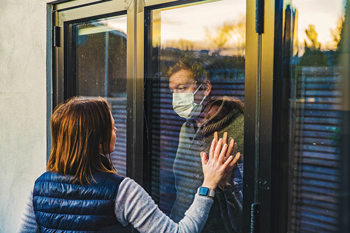 As of the end of March, Cumberland County had 24 positive COVID-19 cases, according to Health Director Dr. Jennifer Green. That is the fewest of North Carolina’s largest metropolitan areas. Mecklenburg County had the most reported cases in the state, with 420. Wake County had 186, and Durham County reported 122. The Cumberland County Department of Public Health is conducting contact investigations and will notify contacts who fall under the guidelines for additional monitoring and testing.
As of the end of March, Cumberland County had 24 positive COVID-19 cases, according to Health Director Dr. Jennifer Green. That is the fewest of North Carolina’s largest metropolitan areas. Mecklenburg County had the most reported cases in the state, with 420. Wake County had 186, and Durham County reported 122. The Cumberland County Department of Public Health is conducting contact investigations and will notify contacts who fall under the guidelines for additional monitoring and testing.
Meanwhile, Fayetteville Mayor Mitch Colvin has imposed a 9 p.m. to 6 a.m. daily curfew in the city. Police officials say they are prepared to enforce the curfew but urge voluntary compliance.
The Centers for Disease Control and Prevention defines a “close contact” as being within 6 feet for 10 minutes or more. Avoiding close contact with sick individuals requires frequently washing hands with soap and water; not touching the eyes, nose or mouth with unwashed hands; and practicing good respiratory hygiene. These are preventive measures but there is no vaccine. The health department has suspended a drive-thru testing pilot program. The department is following CDCP and North Carolina Department of Health and Human Services guidance that most people do not need a test.
The Health Department is prioritizing testing for symptomatic patients in high-risk settings like nursing homes or long-term care facilities, health care workers and first responders such as EMS, law enforcement and firefighters on a case by case basis. Individuals in these categories should call 910-433-3655 for assessment and screening.
“In general, patients in noncongregate settings who have mild symptoms that are not worsening do not need testing for COVID-19 and should stay home,” Green said. “When you leave your home to get tested, you could expose yourself to COVID-19 if you do not already have it.”
There is no treatment for COVID-19. Health care providers recommend getting enough fluids. Water is fine. So are fruit juices and electrolyte beverages. You may want to stay way away from caffeinated drinks, because caffeine is a diuretic. Herbal tea with honey can soothe a sore throat. And yes, chicken soup has value. Mild symptoms are defined as fever and cough. If one suffers from shortness of breath, difficulty breathing, chest discomfort, confusion or blue lips, he or she should call the doctor or 911 right away and tell them about your symptoms and any potential exposure to COVID-19.
North Carolina had at least 1,512 reported coronavirus cases as of March 31, and eight people have died. Researchers at the University of Washington’s Institute for Health Metrics and Evaluation are predicting that 1,721 people could die of COVID-19 in North Carolina before the outbreak subsides and that the need for hospital beds statewide should be sufficient in the coming weeks.
“This is a great example that if you implement social distancing, you will see the impact,” said Dr. Ali Mokdad, a professor at Washington’s Institute. The pandemic’s peak is still weeks away in North Carolina. University of Washington’s latest model predicts the North Carolina peak will be April 22.
COVID-19 in North Carolina
- Details
- Written by Jeff Thompson

 How to resolve AdBlock issue?
How to resolve AdBlock issue? 









